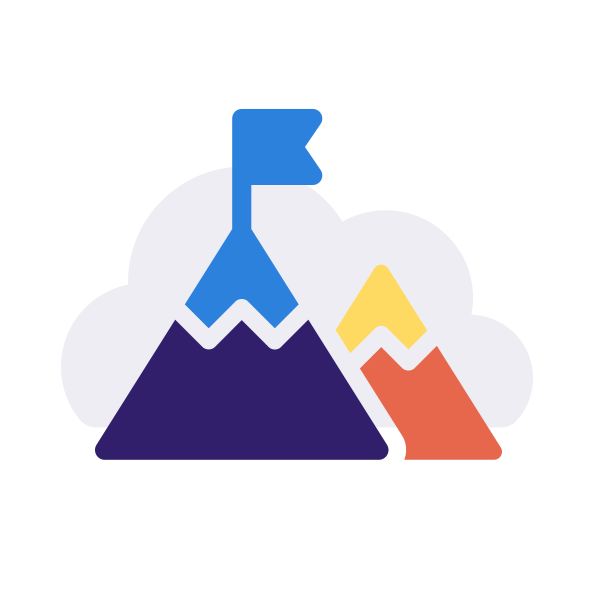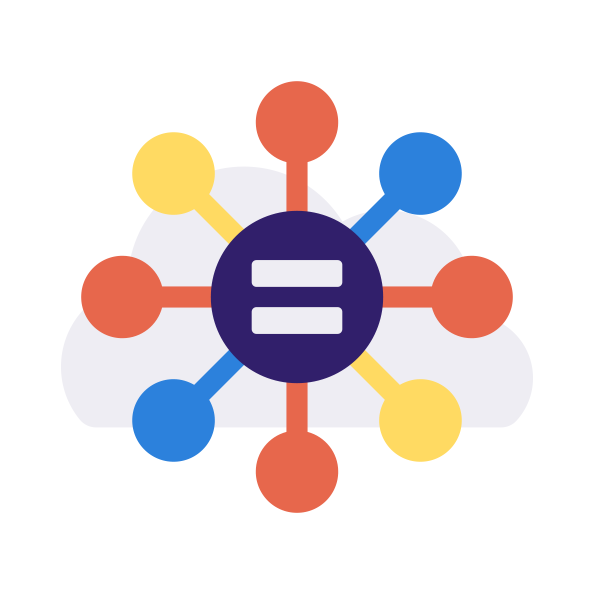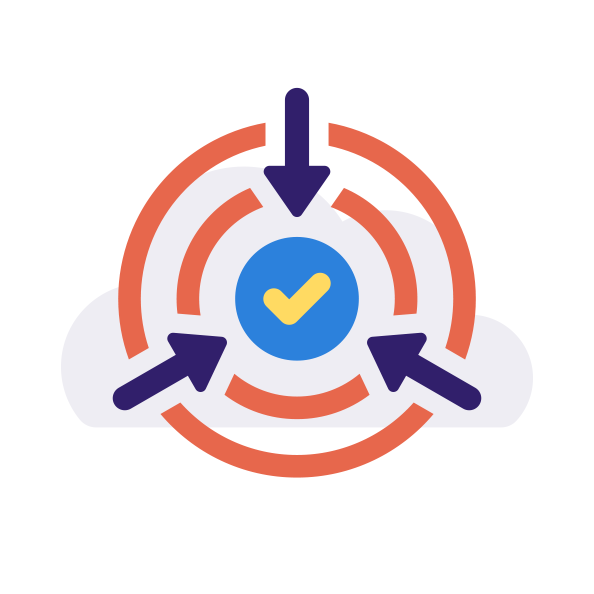
MASON FRANK’S
CAREERS AND HIRING GUIDE
2025
The ultimate source for the latest career insights, hiring trends, and salaries across the Salesforce® universe.
Foreword: A message from Salesforce


Nia Samady
Foreword: A message from Salesforce
We sat down with Nia to learn first-hand how the Salesforce ecosystem is evolving, how employers and professionals can best navigate these changes, and what’s exciting her most about the ecosystem of both today and tomorrow.
Executive summary
I’m thrilled to introduce Mason Frank’s latest Careers and Hiring Guide, one of the ecosystem’s go-to resources on all things Salesforce.
Whether you’re brand new to the Ohana, a Salesforce pro with bundles of experience, or the person in your team responsible for sourcing fresh talent, our latest compilation of insights, data, and market trends will keep your personal ambitions and business goals in check.
As usual, our findings were collated via two main channels: self-reported data from an online survey and statistical analysis of vacancies and placements made by our team at Mason Frank. Collectively, this information has enabled us to provide a snapshot of the Salesforce landscape over the last 12 months—and with all these insights at your fingertips, you can map out the career of your dreams or steer your hiring decisions more effectively.
So, what does our new data tell us about working with the platform and recruiting talent in the Salesforce space? Let’s profile some of our key findings, starting with certifications.
So, what have we discovered this year?
Expand to keep reading the thoughts of our Chairman and Chief Executive Officer James Lloyd-Townshend
Expand to keep reading the thoughts of our Chairman and Chief Executive Officer James Lloyd-Townshend
We know that Salesforce professionals tend to be avid learners, so it is no surprise that 82% hold a Salesforce certification, and 83% of certified respondents consider that they make you a more valuable candidate. In fact, 95% of those surveyed use Salesforce Trailhead to upskill. And if you still need convincing on the value of certs; on average, those who reported a pay increase post-certification received an additional 18% in their take-home pay.
But salary isn’t everything, and our stats help to paint the bigger picture. Among the permanently employed professionals we surveyed, 90% told us that salary aside, workplace benefits are important when deciding whether to accept a job offer. A monetary bonus and homeworking are the top two perks most likely to entice a candidate into a new role.
Spotlighting freelance life, our survey tells us that 43% of contractors work for just one client, and the average contract lasts six months and two weeks. Notably, 67% cite finding new contracts and customers as the major issue they face, but don’t worry, as we have advice on navigating this very problem!
Now, we move on to a topic that continues to dominate conversations in the ecosystem. Among the 48% of hiring managers who believe there is an IT skills gap, they highlight the time it takes to find the right talent as the main challenge they face when tackling a skills shortage in their team. Moreover, 69% of organizations impacted by this skills divide are witnessing increased employee turnover.
Lastly, let’s focus on what businesses do around equality, diversity, and inclusion (EDI). Disappointingly, only 67% of organizations have invested resources into their EDI initiatives, down from 75% in our previous study. And only 55% of employees believe their employer is providing equal pay for equal work. We explore these findings and what they mean later in the guide, so keep reading.
I hope these statistics have piqued your interest! A huge thank you to everyone who completed our survey, as YOU make this report possible every year. Congratulations to our prize draw winners: Solution Architect Susan Connor, PhD; Chris Leska, Director of Business Systems; and our final anonymous winner.
Our survey will return next year, so look out for your chance to shape discussions in the Salesforce community. In the meantime, stay up to date with all the latest happenings in the ecosystem by bookmarking our blog and joining 66k people who already follow us on LinkedIn.
Until next time,
James
Executive summary




James Lloyd-Townshend
Chairman and Chief Executive Officer
Mason Frank
What's in this guide?
Navigate to the relevant content using the options provided below:


Exploring training and certifications in the Salesforce universe
Find out which skills and certifications you need to thrive in today’s Salesforce landscape


Insights for employers and hiring managers: Recruiting and keeping talent
Learn how to attract and keep experienced Salesforce professionals


The digital skills gap
Uncover the impact of the tech skills shortage, and what we can do about it


Insights for candidates: Career development and the jobs market
Discover professional tips for getting ahead in your Salesforce career


Equality, diversity, and inclusion
See how the Salesforce universe is driving EDI


Career spotlights
Read about some of the most in-demand Salesforce roles, and what you need to succeed in them
Want to size up your Salesforce salary against the latest market rates and uncover your earning potential?
About this guide
This report is based on over 75,000 data points, including self-reported survey information from almost 600 Salesforce professionals worldwide between March and July 2024. Respondents span a range of industries, come from diverse personal and professional backgrounds, and include a mix of professionals and hiring managers.
We’ve validated every survey response using robust statistical analysis and automated data validation rules to be included in the final results. Any data that didn’t pass our validation rules and statistical analysis or was deemed questionable, incomplete, or duplicate was removed so that the results published are meaningful and accurate.
The following should be considered when interpreting the data in this report:
- Not all percentages add up to 100% because some questions have multiple-choice answers
- Answers are rounded for single-choice questions, so not all responses will total 100%
- Findings based on a small sample of results (i.e., under 5%) should be taken as indicative only
- For questions that asked for an open (qualitative) response, there may be some overlap in the quotes used to identify the themes, with quotes illustrating more than one theme
- Themes identified when grouping qualitative responses are displayed in no particular order of importance and are purely representative of the answers given
- Respondent views are their own and do not reflect the views of Mason Frank and its employees
Interested in learning more about the demographic profile and the types of organizations our respondents are from?




MASON FRANK’S
CAREERS AND HIRING GUIDE
KEY FINDINGS 2025



